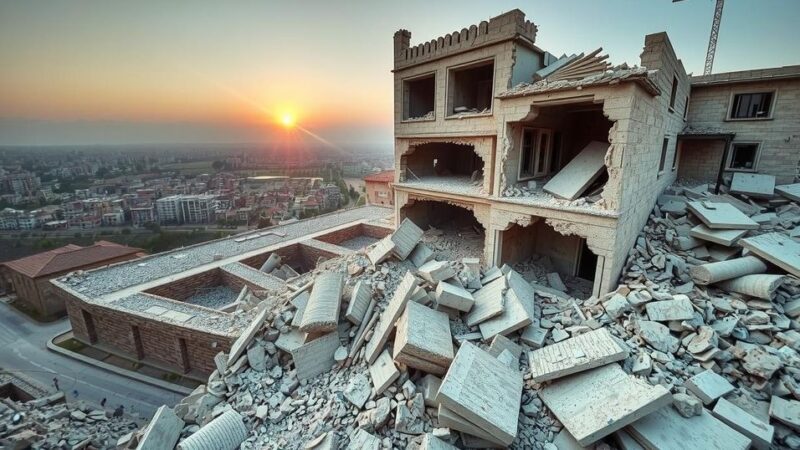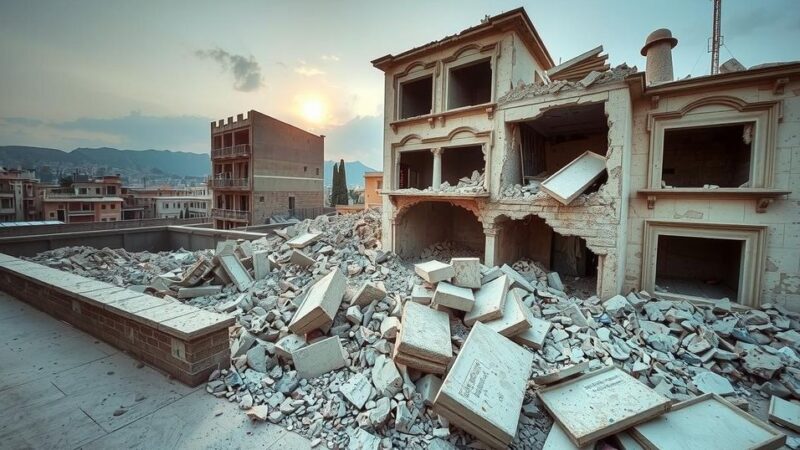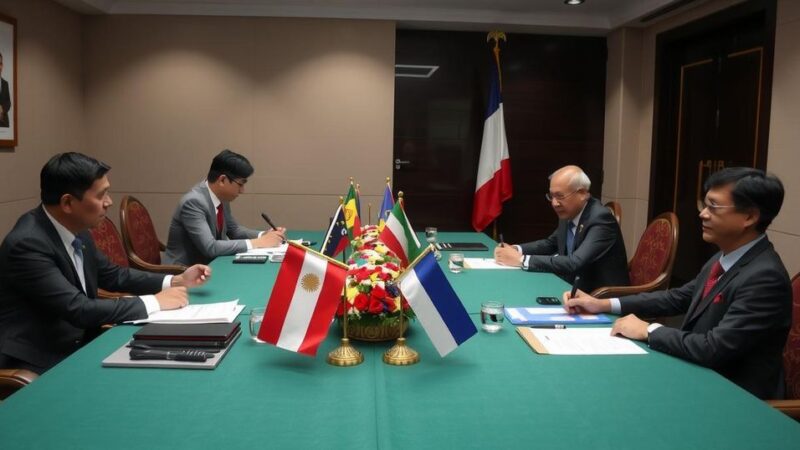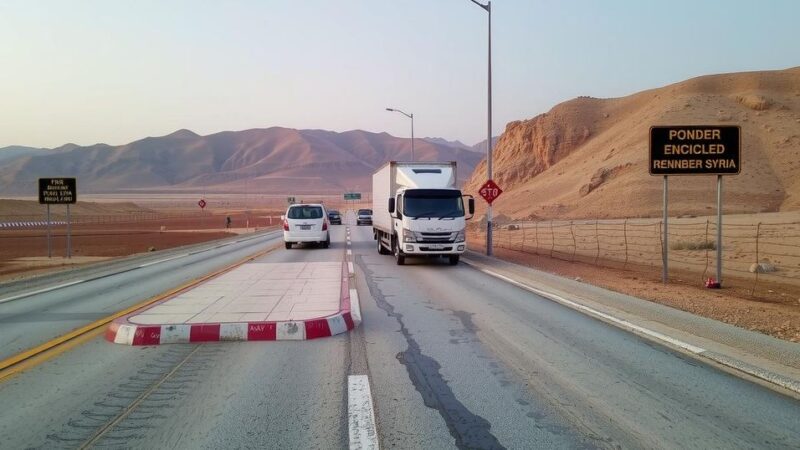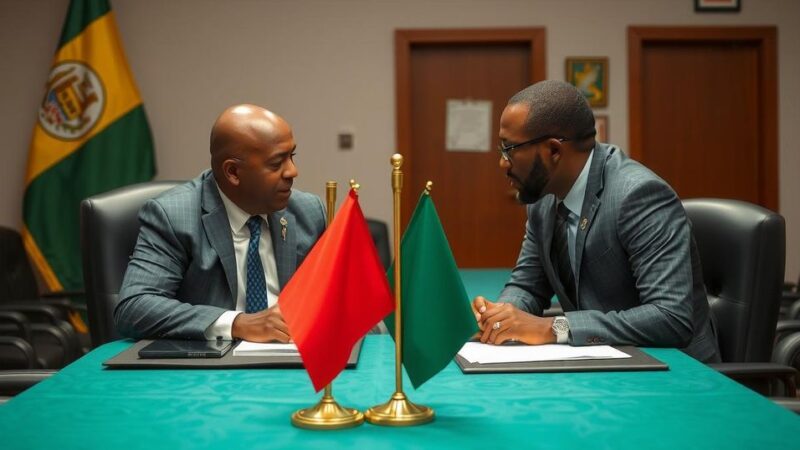Turkey and Qatar are rising as influential powers in post-Assad Syria, capitalizing on the decline of Iranian influence. They pursue an agenda that includes supporting democratic movements and rebuilding the war-torn nation, while simultaneously addressing strategic interests like countering Kurdish forces. Their cooperative approach aims to include regional actors, potentially reshaping Middle Eastern power dynamics and fostering stability in Syria.
In the evolving geopolitical landscape of the Middle East, Turkey and Qatar have emerged as influential players in Syria, particularly following the decline of Iranian dominance. As these nations strive to reclaim their authority, they are reinvigorating a shared regional agenda focused on promoting democracy and bolstering Islamist political factions. Analysts observe that this shift not only enhances their strategic foothold in Syria but also positions them as key architects of the country’s political and economic future post-Assad.
Turkey aims to counter the influence of Kurdish factions, particularly the Syrian Democratic Forces (SDF), which it perceives as a security threat. Concurrently, Turkey and Qatar are leveraging their newfound clout by engaging in reconstruction efforts and facilitating political dialogue, thereby fostering stability within the region. Their coordinated actions reflect a broader objective to forge a more inclusive post-conflict governance structure in Syria, while also working collaboratively with other Arab states.
Under the regimes of Turkish President Recep Tayyip Erdoğan and Emir Tamim bin Hamad Al Thani of Qatar, both nations have transitioned from supporting the opposition during the Syrian civil war to actively shaping the country’s political landscape. Their diplomatic efforts to invite various regional powers into the conversation regarding Syria’s future, including those previously aligned with the Assad regime, illustrate their commitment to a cooperative approach that emphasizes consensus over domination.
As Turkey and Qatar redefine their roles in the region, they are not only reshaping Syria’s political dynamics but also setting a precedent for other nations navigating the influences of regional power struggles. Their ability to engage multiple stakeholders suggests a pragmatic path forward in a post-Assad Syria, with potential implications for broader Arab relations. Ingredients of cooperation and inclusiveness may signal a new era of regional politics in which traditional rivalries give way to shared interests and mutual benefits.
Thus, the rise of Turkey and Qatar as central figures in Syria’s reconstruction and governance is pivotal in the current reconfiguration of Middle Eastern power dynamics. The success of this new diplomatic alignment remains contingent on their capacity to maintain stability, coordinate effectively with other regional actors, and uphold a vision of democratic governance amidst a complex and often contentious political landscape.
The Middle East is witnessing a significant transformation in power dynamics, particularly in Syria, where the influence of Iran has notably waned. This shift has paved the way for Turkey and Qatar to become pivotal players in the region. The Syrian civil war, which has drastically altered the political landscape, has allowed these nations to step in as key brokers, taking advantage of the vacuum left by the previous hegemonic powers. Their strategic involvement is designed not only to promote their national interests but also to champion broader democratic and political movements throughout the Arab world, ultimately seeking stability in a historically volatile area. This article examines the implications of Turkey and Qatar’s rising influence within the context of Syria and the broader Middle Eastern geopolitical setting.
In summary, the decline of Iranian influence has catalyzed the ascent of Turkey and Qatar as principal actors in the Syrian landscape. Their focus on supporting democratic transitions, engaging with regional neighbors, and facilitating reconstruction efforts illustrates a strategic pivot towards collaboration rather than competition. As they navigate the complexities of post-war Syria, their actions could redefine not only the future governance of the country but also the relationships between various Arab states, heralding a new phase of Middle Eastern politics marked by inclusiveness and shared governance.
Original Source: www.csmonitor.com


